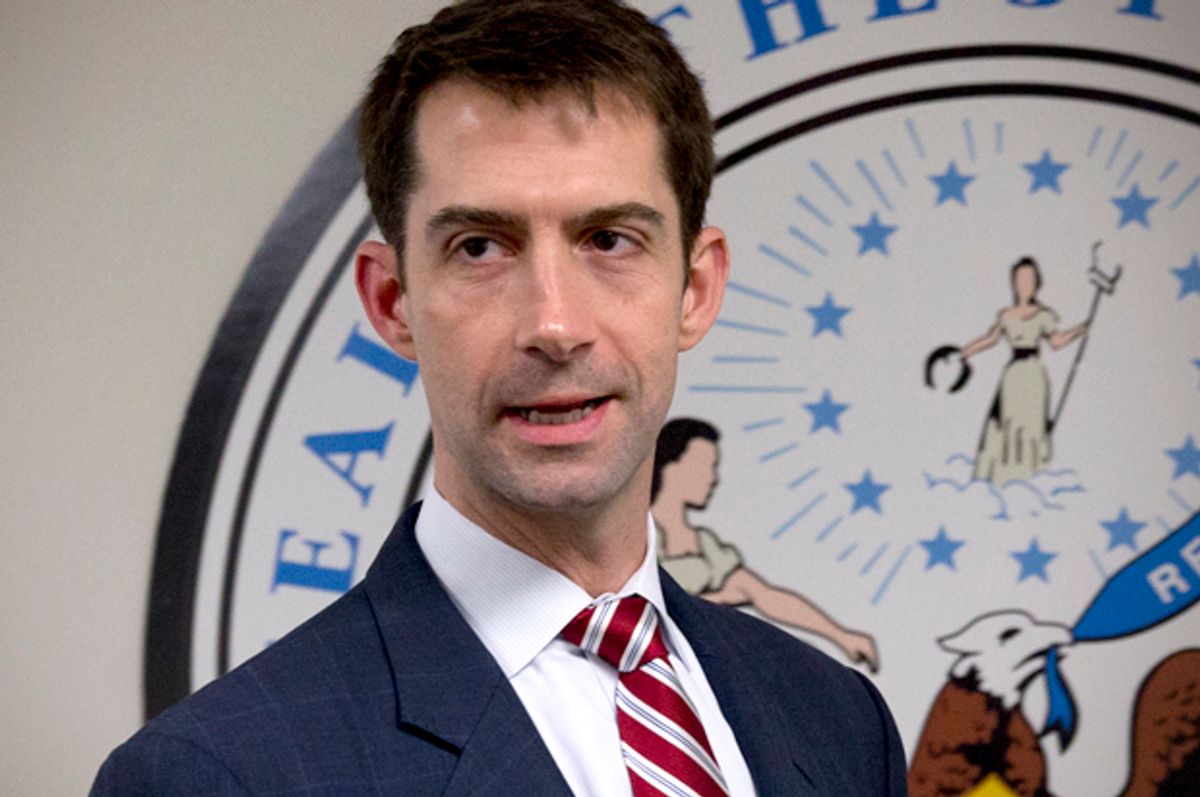America holds roughly 5 percent of the world's population and boasts 25 percent of its prison population. Something like 2.2 million people are currently imprisoned in this country. Our per capita incarceration rate is 750 per 100,000 – only Russia comes close to that at 450 per 100,000. Among African-American males, it's nearly 4,000 per 100,000.
This is a national disgrace.
Forty or 50 years ago, the numbers were far lower than this and comparable with much of the industrialized world. But thanks to a racist drug war and the concomitant explosion of the prison-industrial complex, America has become a star-spangled penal colony, a place where an African American male without a high school diploma is more likely to end up in jail than with a job.
Mass incarceration and criminal justice reform has emerged as one of the few fronts on which bipartisan action is possible. Nearly all Democrats are pushing for changes and, lately, prominent Republicans are increasingly open to reforming the system as well. One of the lone exceptions appears to be resident tough guy, Sen. Tom Cotton.
The junior senator from Arkansas who gained national attention last year with his inane letter to Iranian leaders has now taken a curious stand on America's prison dilemma. Turns out, we've really got an “under-incarceration problem.” Despite the numbers and the trends and grotesque reality of a for-profit prison system, Cotton thinks we've got it all backwards.
Cotton has been critical of the efforts in Congress to reduce mandatory minimum sentences, but he doubled down in a speech on Thursday at The Hudson Institute:
“Take a look at the facts. First, the claim that too many criminals are being jailed, that there is over-incarceration, ignores an unfortunate fact: for the vast majority of crimes, a perpetrator is never identified or arrested, let alone prosecuted, convicted and jailed. Law enforcement is able to arrest or identify a likely perpetrator for only 19 percent of property crimes and 47 percent of violent crimes. If anything, we have an under-incarceration problem.”
Cotton makes an interesting point about the pathological violence pervading American society (which, naturally, has nothing to do with our mania for guns), but that's actually a separate issue. If anything, the fact that we're jailing a quarter of the world's prison population in spite of not apprehending the majority of violent offenders is itself a reflection of our obscene sentencing guidelines. We're incarcerating too many citizens for victimless drug offenses and various non-violent crimes.
But Cotton thinks we're showing too much empathy for “those caught up in the criminal-justice system.” Indeed, after perfunctorily acknowledging the racist roots of America's felon-disenfranchisement laws, he dismissed the growing concerns over police brutality: “Let me make something clear: black lives do matter. The lives being lost to violence in America's cities are predominantly those of young black men, with devastating consequences for their families and their communities. But the police aren't the culprits. In nearly every case, the blood is on the hands of criminals, drug dealers, and gang members.”
No one denies that drug dealers and gangs are real problems, but that in no way diminishes the reality of a racialized incarceration system or an unjust drug war aimed at black Americans. While Cotton chooses his words carefully, his analysis is devoid of context. Yes, there are high levels of crime in urban areas, but that itself is a product of the drug war and the systematic destruction of these communities. Crime will always be higher in areas in which opportunities are scarce and the only thriving economy is a shadow economy. The focus ought to be the criminal justice system that props up these underground economies and lays waste to the surrounding communities. Much of our violent crime problem has been socially engineered; it's about policy. Sen. Cotton shows no interest in this history.
So no, senator, we don't have an “under-incarceration problem.” We need to end the failed drug war and impose sensible sentencing guidelines, we need to address the antecedent causes of violent crime, we need less warrior-cops and better police work, we need to reduce the prison population and remove the profit motive that produced it, and we need to target law enforcement practices in cities like Ferguson which focus on revenue rather than public safety.
Building more jails and decimating more families won't solve any of our problems.

Shares